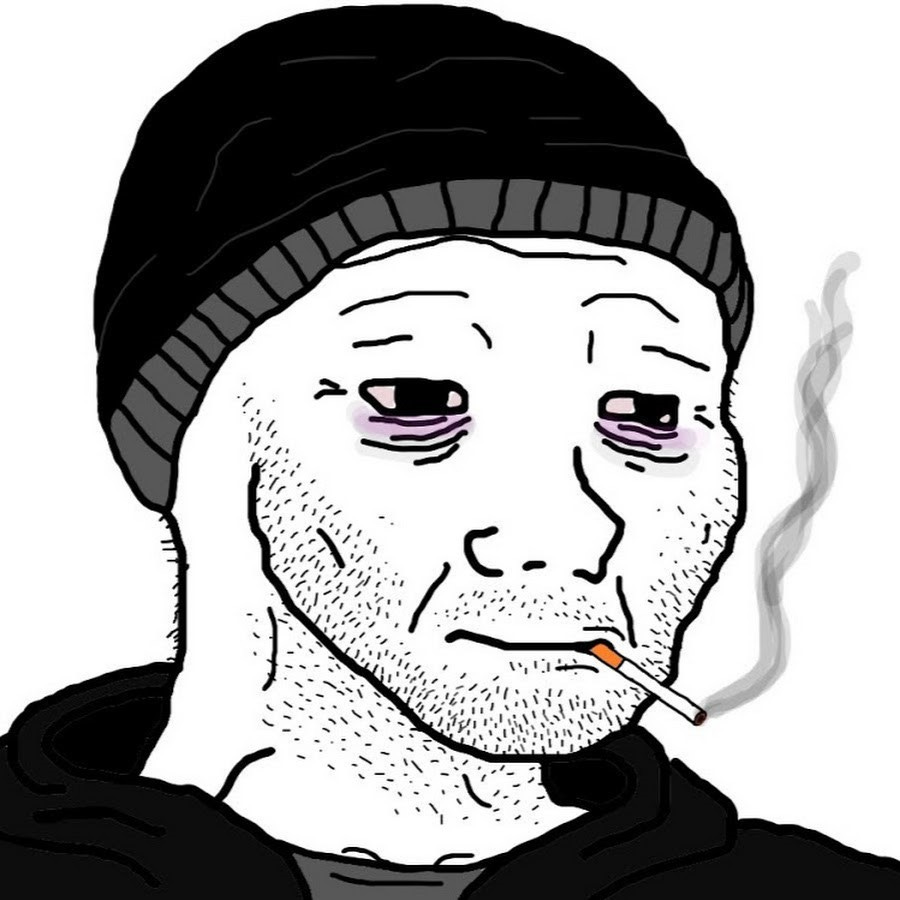By Ben Parry
[This article is written assuming familiarity with the plot of Everything Everywhere All At Once (EEAAO). So, it may contain spoilers. If you haven’t seen the film yet do yourself a favour and watch it before reading. If nothing else it will also enhance your enjoyment of this piece ;)]
A frequent contention with the Doomer Optimism community is the use of the word “Doomer”. It’s a difficult word. Having “Optimism” added is a good conciliatory move. But it can feel like the “Doomer” opening sets the whole thing off on the wrong foot. You can get a sense for why by doing a search for “doomer”. This is the first meme that comes up:
These concerns are sticky. You could argue that the doom is required for us to look at our situation realistically. Equally, you could say that we need to be a little playful and the doom terms gives us some freedom to do so. Nonetheless the concerns linger.
EEAAO has some potential framings that could help reconcile the two poles of DO for anyone looking to vibe with the collective.[1]
EEAAO is probably one of the best Buddhist movies of all time:
Specifically, EEAAO builds up a series of insights that are core to the Buddhist worldview.
First, the film explores how ultimately our lives are driven by a series of contingent occurrences. Whether we end up a massive martial arts movie star or running a small laundromat is a result of a series of seemingly inconsequential choices. Each of the potential lives we could inhabit is driven by forces beyond our control and exists only fleetingly. This is painful.
The pain we feel comes from attachment. Given the contingency of events and their impersonal nature it is difficult to determine what about the life you lead is actually ‘yours’. If we do think of something as belonging to us we are always disappointed. Nonetheless we cannot help but attach ourselves to things, we accumulate the experiences of our lives like all the toppings you could find to put on a bagel. The weight of these experiences that we cannot ultimately control, identify with, or hold on to for any length of times becomes crushing.
However, there is a way out of this dilemma.
There is an option to participate in this movement of contingent forms unattached, without identifying with anything, operating in a loving and generative fashion. The experience that accompanies this way of living is peace. Freedom and tranquility. This is the path taken by the spiritually ennobled.[2]
The DO thesis is that there is an inevitable coming catastrophe. The ecological and psychological straights that we have created, and their complex interdependencies will inevitably lead to societal collapse: rising food prices, political instability, changing climates.
The optimism comes from the sense that this will not be the end. We can already begin in small ways to create paths through this difficult period for at least some people and build robust platforms for continued flourishing following the collapse. Perhaps in our most extravagant dreams we could even imagine a ‘soft landing‘.
The error that the DO community can sometimes fall into is a framing that paints a hopeless future where you should ‘try anyway’. Such a view is self-defeating. As soon as the idea that the future is set or that a person lacks agency in absolute sense then no matter the positive emotion a person can muster in the moment their frame is ultimately undermined.
If the problem of evil is the core philosophical paradox of Christianity, then the problem of approaching the world with love whilst believing that everything should be renounced is the issue of Buddhism.
The resolution that EEAAO - and Buddhists more broadly - find is that when one is freed from identifying with their ‘self’, with specific outcomes or specific aspects of the world, the result is an unbounded freedom and underlying peace.
EEAAO can help the DO community another way to frame their enterprise. There is neither a set point of doom nor an emotional optimism to take us forward beyond it. Instead, we can see the world for what it is and meet it with free actions and peaceful states.
Ben writes about capability, cults, and complexity on Substack
[1] Though it may not be able to resolve all the PR issues ;)
[2] For anyone unfamiliar with Buddhism. These four insights are a reframing of the Four Noble Truths ☸️





